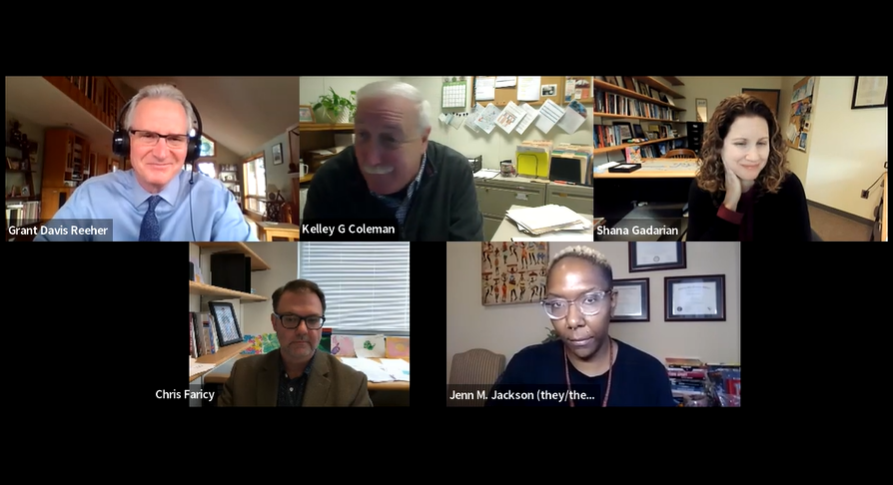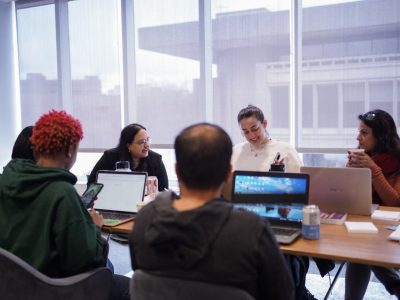Democracy Was on the Ballot, Candidates Matter and Other Lessons From the Midterm Elections
The contentious 2022 midterm elections are not quite finished—next week’s runoff in the race for the Georgia Senate seat pits Democratic incumbent Raphael Warnock against Republican Herschel Walker—but following a grueling campaign season, the American people went out and cast their ballots in an array of local, state and federal races.
The results were quite atypical to what normally occurs during the midterms, and a recent Maxwell School panel shared insights on those surprising outcomes while analyzing the topics that influenced the midterms—such as the impact of former President Donald J. Trump on endorsed candidates, the fragility of polling data and ballot initiatives like the right to get an abortion and slavery laws that were voted on in several states.
Participants in the Nov. 17 virtual event, “After the Election: Assessing the Midterms,” included Chris Faricy, professor of political science and Hicker Family Professor in Renewing Democratic Community; Shana Kushner Gadarian, professor and chair of political science and Merle Goldberg Fabian Professor of Excellence in Citizenship and Critical Thinking; Jenn Jackson, assistant professor of political science; and Sean O’Keefe, University Professor and the Phanstiel Chair in Leadership.
Grant Reeher, professor of political science and director of the Campbell Public Affairs Institute, moderated the conversation. It was the latest in a lecture series coordinated by the institute.
While the economy certainly was on the minds of many voters, there was something else that played just as large of a role in the midterm elections: our democracy was on the ballot, and the midterm election results demonstrated that candidates and issues matter when people vote.
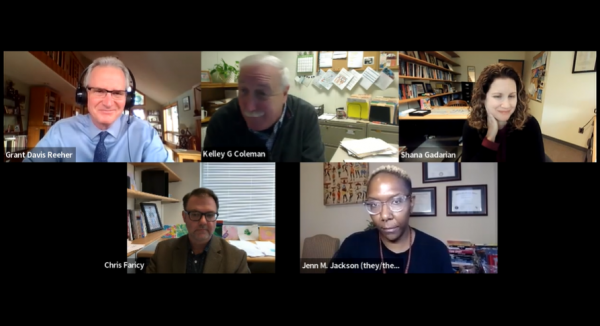

Traditionally, the midterm elections represent a pushback against the sitting president and the party that won office two years earlier. Republicans did win enough races to reclaim control of the House, but Democrats held onto control of the Senate in a fairly surprising election result considering high inflation rates plaguing much of the country combined with low approval ratings for President Joseph R. Biden Jr. L’68.
The panelists brought a diverse range of perspectives to the conversation and agreed that the state of American democracy was among the top concerns demonstrated by voters.

“What caught my eye was how voters showed up to protect democracy in ways that cut against some of the narrative leading up to the election that the Democrats were making a mistake by saying democracy was on the ballot. From a political science perspective, this was a surprise. The end results show that people did show up and did vote for democracy as if it was on the ballot,” Faricy said.
Among the panelists’ other takeaways: real-world issues like the strength of the economy and the jobs market and reducing crime trumped questions about the legitimacy of the 2020 election.
Speaking of former President Donald J. Trump and his impact on the midterms, Gadarian alluded to recent analysis published in The Economist that showed candidates backed by Trump fared worse by five points than non-Trump endorsed candidates, and that the vast majority of election-denying candidates saw a similar fate, leading to historically small midterm gains for the Republican party.
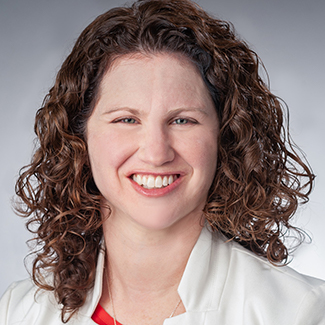
“Even in a very polarized environment where partisanship is the lens that people use in evaluating and deciding who to vote for, we saw that candidate quality and extremism still matter. The candidates who were running as election deniers didn’t have a lot of political experience and their attitudes and policy positions were out of step with the states where they were running, and that proved to be fatal,” said Gadarian, who recently co-authored “Pandemic Politics: The Deadly Toll of Partisanship in the Age of COVID” (Princeton University Press, 2022).
Unlike many of the previous midterm elections, this year saw more voter participation from young people between the ages of 18 and 29, with many deciding to voice their opinions at the ballot box for the first time.
According to Jackson, these young voters represented 27% of the eligible voting population, and in swing states, their participation climbed to 31%, with the overwhelming majority voting for Democratic candidates by a 28-point margin.
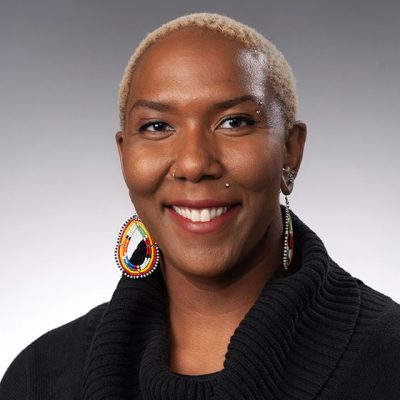
The reasons for their turnout were simple, according to Jackson: After witnessing the Supreme Court overturn Roe v. Wade and make other decisions that impacted how they live their lives, they wanted their voices to be heard on Election Day.
“Overwhelmingly young people have been saying they felt counted out and they’re not into politics, and then they saw the events of Jan. 6 and experienced the rollback of Roe v. Wade, and those had real implications for their lives. This was much more than just about a political agenda or a platform; now we have to think about who is eligible to vote, what issues concern them and what these new voters are bringing to politics,” Jackson said.
Another important ballot initiative had voters in five states—Alabama, Louisiana, Oregon, Tennessee and Vermont—voice their opinion on slavery, more specifically, closing a loophole of the 13th Amendment that allows for involuntary servitude of incarcerated individuals. Jackson said voters in Alabama, Oregon, Tennessee and Vermont approved ballot measures to adjust their state constitutions to bar slavery. The result could restrict the use of prison labor as punishment for a crime in those states, while Louisiana residents rejected a version of the initiative that featured confusing language.
When it comes to polling and the accuracy of election polls, many political pundits were calling for a red wave that would catapult the Republican party back into power after Election Day. Instead, that red wave never materialized, and for the fourth consecutive election cycle, O’Keefe credits the vagueness of the polling process with creating results that differed from how the experts envisioned the elections playing out.

“The number one issue was the incredible frailty of the polling data. In a lot of places you wouldn’t have expected, the results turned out to be dramatically different than the polling numbers suggested. The combination of all that tells us a lot about the frailty of polling. Any number of explanations have been offered, but none seem to accurately capture exactly how polling has consistently been different in places where you don’t anticipate it,” said O’Keefe, who held leadership roles in the administrations of both President George H.W. Bush and President George W. Bush.
From a nonpartisan perspective, for those looking for good news out of the midterm elections, Jackson pointed to the record number of trans politicians elected to hold public office, while O’Keefe observed the return of a basic Election Day practice that has been in place for more than two centuries: defeated politicians gracefully conceding they lost their race.
“This isn’t just a nicety, it conveys a sense of stability to the citizenry that this election is not going to be a raucous process,” O’Keefe said.
